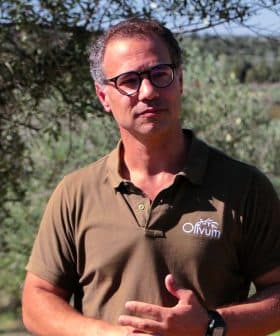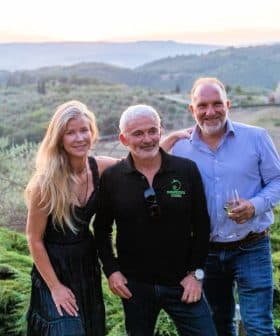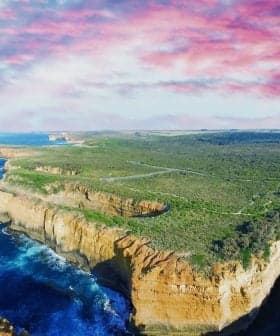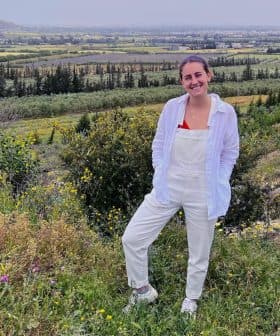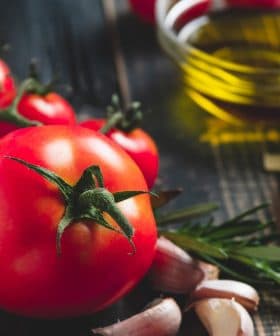Boundary Bend Co-Founder: Quality and Investment Are Key to Olive Oil’s Future
Rob McGavin said the industry needs to work together to succeed long-term, from technology-based solutions to emphasizing extra virgin olive oil’s health benefits.
 Rob McGavin
Rob McGavin Rob McGavin, executive chairman of Boundary Bend, believes that what is best for consumers is also best for growers. Boundary Bend, founded by McGavin and his college classmate in 1997, has become the largest producer of Australian extra virgin olive oil by focusing on quality, educating consumers, and cutting production costs. McGavin advocates for eliminating meaningless marketing terms and increasing consumer education to promote high-quality extra virgin olive oil consumption.
“Whatever’s in the best interest of consumers is in the best interest of growers,” Rob McGavin, the executive chairman of Boundary Bend, told Olive Oil Times.
Since graduating from university in 1993, McGavin has been involved in agriculture, first purchasing a small vineyard in South Australia before co-founding Boundary Bend with his college classmate, Paul Riordan, four years later in Victoria.
To be honest, there’s almost no reason that refined olive oils should exist.
In the 24 years since co-founding Boundary Bend, McGavin has helped transform the company into the largest producer and seller of Australian extra virgin olive oil.
Boundary Bend produces about 70 percent of Australian olive oil from its groves and makes up about 80 percent of the domestic market share of extra virgin olive oil sales.
See Also:Future Lies in Specialized, Sustainable Production, Deoleo CEO SaysSince setting up shop in California in 2015, the company has also become one of the largest olive oil producers in the United States.
Despite their meteoric rise, McGavin described plenty of ups and downs throughout his 24-year career in olive oil production.
“We pretty much had to survive in the early days at the same price as the importers were sending ‘extra light’ and ‘pure,’” he said. “Now, as we’ve educated consumers, we have been able to lift that up to allow us to make a return, but we made some horrendous losses and had some really scary moments, particularly the first 12 years of the business.”
The losses started early after McGavin and Riordan planted Barnea trees imported from Israel. The pair quickly discovered that the trees did not cope well with the climate in Victoria, so they pulled them all out and replanted different varieties.
“It’s been trial and terror,” McGavin said.
However, the principle of focussing on the consumer and quality has guided Boundary Bend to become one of the world’s leading production companies and a private research institution that has published 26 peer-reviewed papers since its inception.
“It’s pretty simple,” McGavin said, “ensuring that consumers get a fantastic experience and that extra virgin olive oil is what it’s called.”
One of the biggest problems facing the industry in McGavin’s view is the meaningless prefixes attached to refined olive oils, especially “extra light” and “pure.”
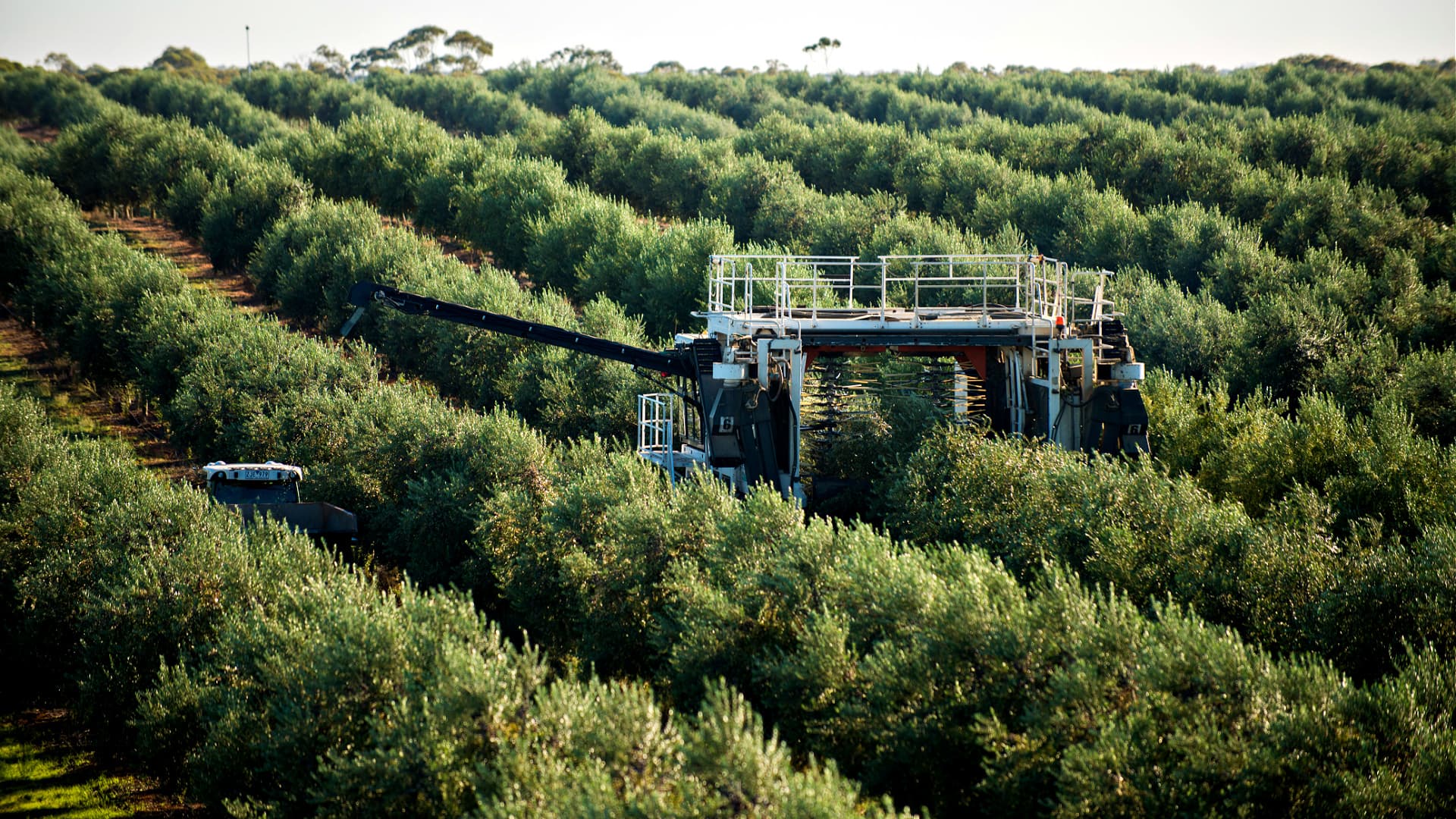
Medium-density olive groves at Boundary Bend
“The industry needs to drop ‘extra light,’ and ‘pure,’” he said. “The industry just has to stop pretending that all olive oil is great but extra virgin is just this thing that you put on your salads.”
However, McGavin emphasized that growers and consumers are not the problems. Instead, he believes that olive oil prices are to blame.
“To be honest, there’s almost no reason that refined olive oil should exist,” he said. “They exist because the pricing signal to the growers.”
According to data from the International Olive Council, extra virgin olive oil prices in Jaén, the benchmark market in Spain, are €3.275 per kilogram, while refined olive oil prices are €2.885, just 12 percent lower.
“The growers make more money sweeping their olives off the ground and selling the oil as refined than they do [from] extra virgin because the price is only 10 percent different, but they get a lot more oil accumulation, and there are fewer costs and issues with the harvest,” he said.
McGavin said the solution for this is to add value to extra virgin olive oils by cutting costs and educating consumers about the health benefits and organoleptic pleasures of consuming the highest grade.
“If you look at Australia’s example, consumers do pay for quality when they understand, but it requires an absolute commitment to an extra virgin being a true extra virgin — and being an extra virgin until the use-by date,” he said.
Among the ways Boundary Bend arrived at the point where it could compete with importers was through cutting production costs by increasing efficiency.
For example, the company installed subsoil sensors in the groves and use satellite technology to monitor when the trees need any particular inputs.
“Technology plays a really important part because it’s about how much water, nitrogen phosphorus, potassium and carbon you are using, emitting or sinking per liter of olive oil produced in the end — that’s the calculation,” McGavin said.
“With all the careful monitoring that we do and the years of research, we know better than most when the trees are using each one of those nutrients and in what volumes,” he added. “So we’re not giving them nitrogen when they’re not even wanting it or using it in the whole nine-month growing cycle.”
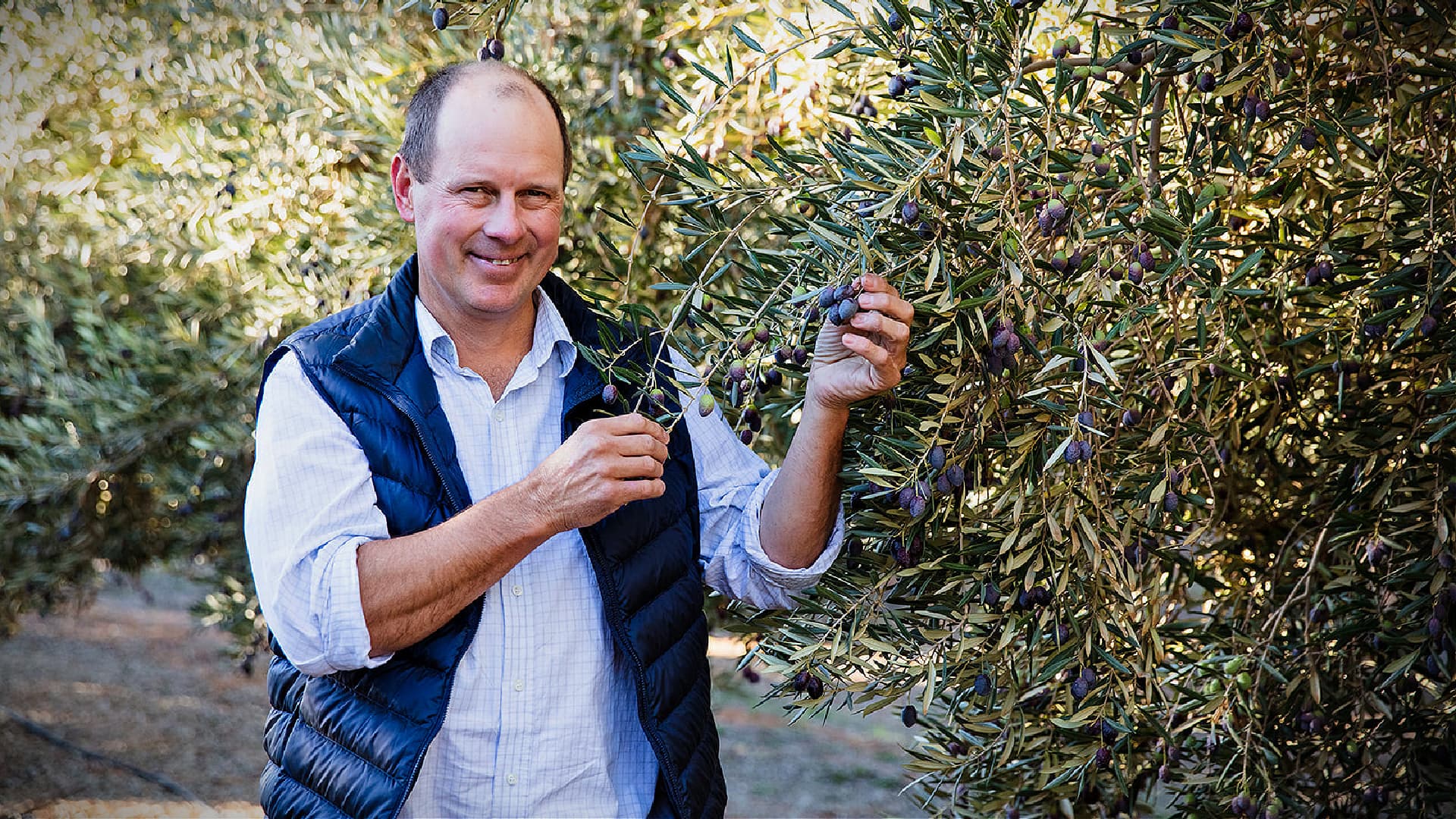
Rob McGavin
In both the United States and Australia, the company is also focused on planting more medium-density groves, which McGavin said strike the best balance between cultivar diversity, environmental sustainability and cost-efficiency.
“There’s no doubt that medium density is overall the most productive, the most sustainable,” he said, referring to the arranging of trees at a distance of 5.5 to 6 meters from one another. “It’s the best for the consumer because it can grow any single variety of olive trees. The olives accumulate more oil, there’s less pruning involved, there’s less capital needed and you generate better returns.”
According to Juan Vilar, a strategic consultant, global olive oil production is trending toward medium-density (also called high-density) and super-high-density plantations from traditional groves.
In a recent analysis, Vilar predicted that 39 percent of the world’s olive groves will be traditionally planted by 2041, down from 92 percent in 1991.
However, McGavin thinks medium-density will play a more important role than super-high-density due to the smaller inputs required and the adaptability to other varieties.
Arbequina and Koroneiki are the two main varieties planted in super-high-density, and McGavin believes that consumers are looking for a broader flavor profile than these cultivars provide.
“I’m not saying that super high density is bad,” he said. “I’m just saying that having all of California growing super-high-density is bad, but if it was 30 percent of the industry, it’s fine.”
Along with cutting production costs, McGavin emphasized that adding value is the way of the future. He said the Australian market is proof that educated consumers spend more money on high-quality extra virgin olive oil because they know it is good for them, and he believes that creating this consumption paradigm encourages more producers to focus on quality and ditch the meaningless marketing terms.
“If you think consumer first, the health benefits are in the polyphenols, so that’s what you need to maximize in your oil,” he said. “That’s why consumers will spend the money. They don’t have a problem buying something if they know how important it is to the health of their family.”
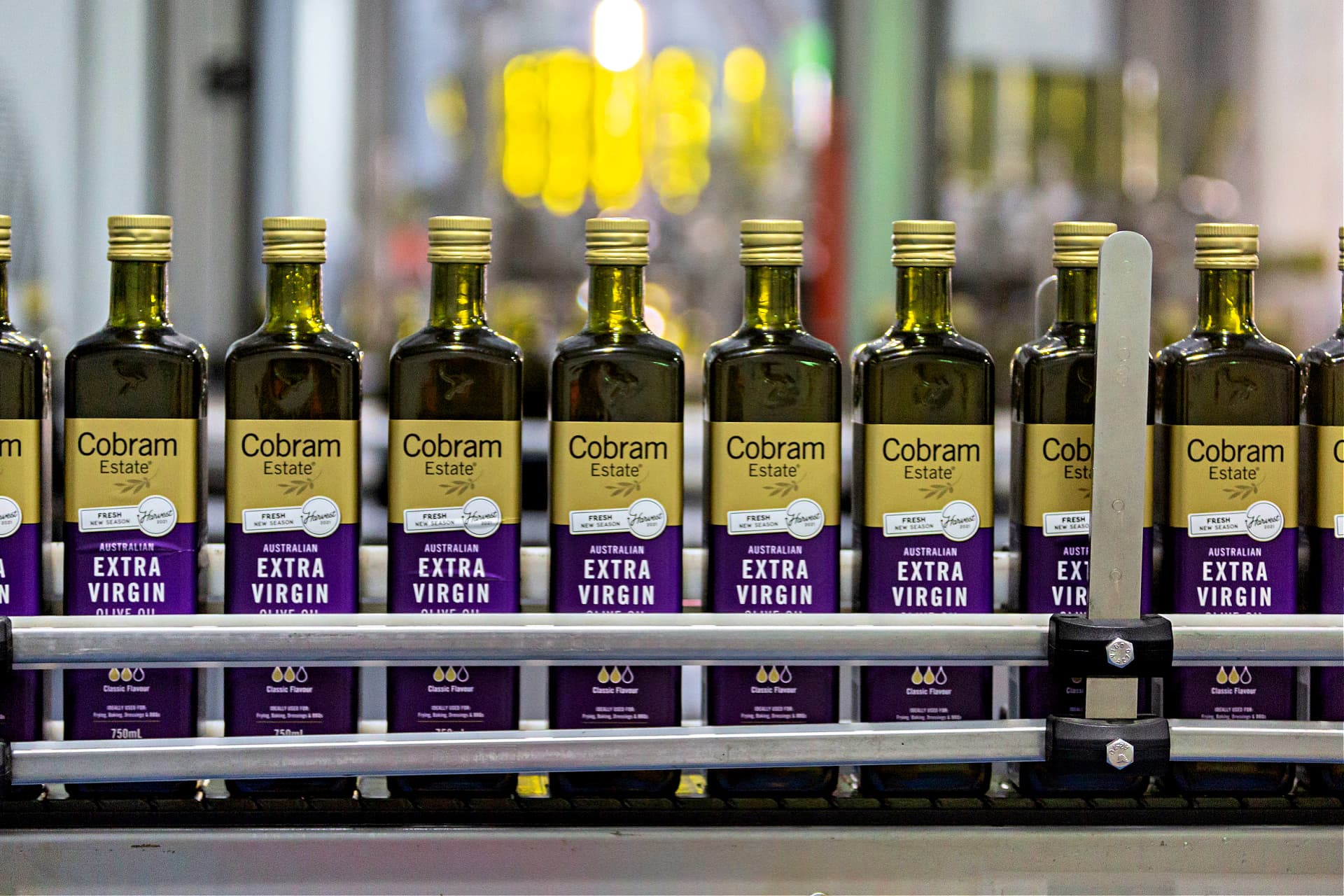
Photo: Boundary Bend
McGavin said consumers need to know that “refined olive oils, which are all the other cooking oils plus ‘extra light’ and ‘pure,’ have trans-fats, polar compounds and things that we know are really bad for you.”
To that end, Boundary Bend works with other growers in Australia and California to help them improve quality through producer education and investing in some of the emerging technologies.
Overall, McGavin believes the pie is big enough for everyone. Cooperation will go a long way in convincing consumers to buy high-quality extra virgin olive oil and persuade producers that their time and investments should be spent accordingly.
“If we work together, we’ll educate consumers better,” he said. “Consumers will get a better outcome. Growers will get more profitable. They’ll plant more. All of the industry will get bigger. It’s self-fulfilling.”
Share this article


